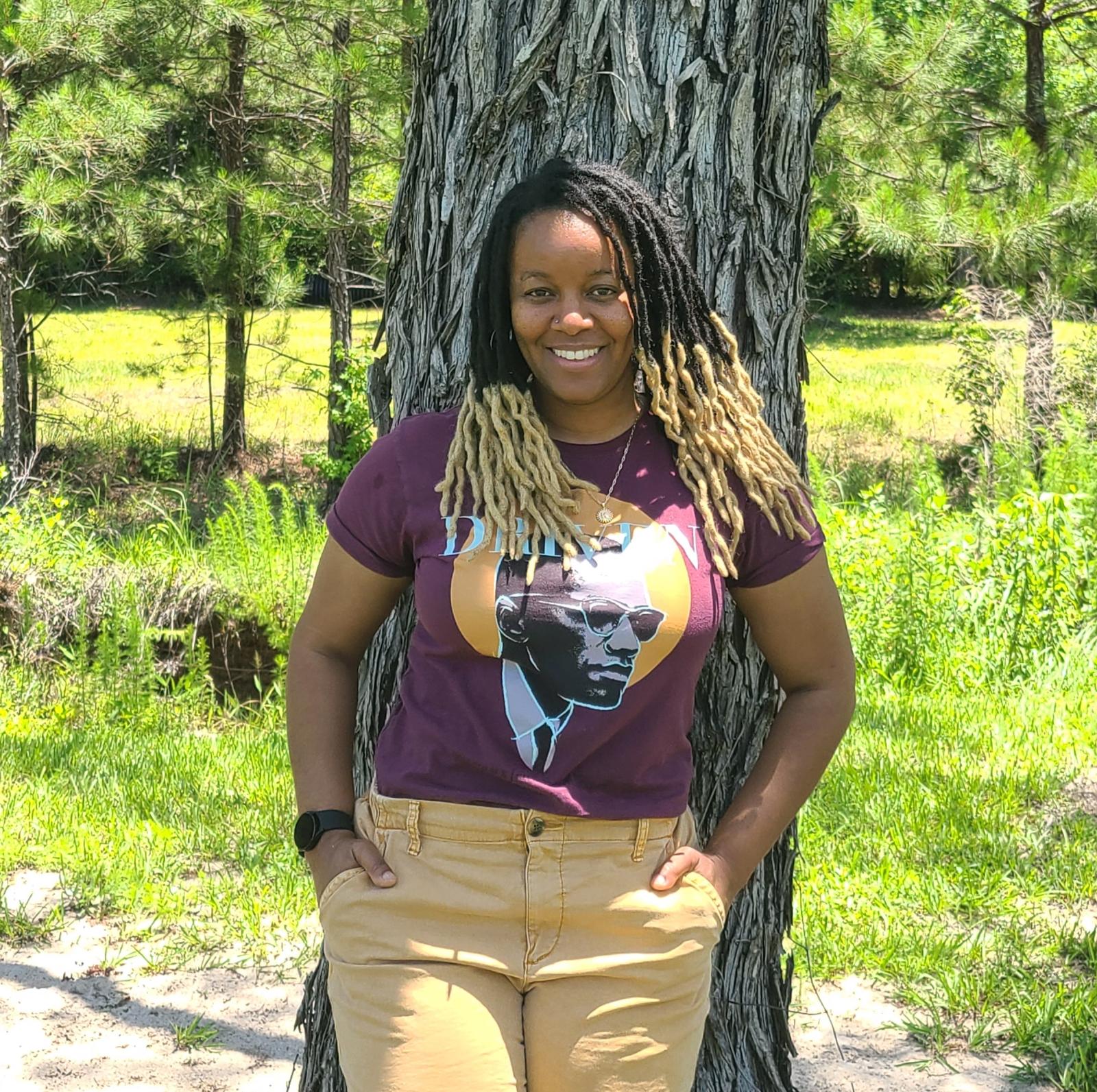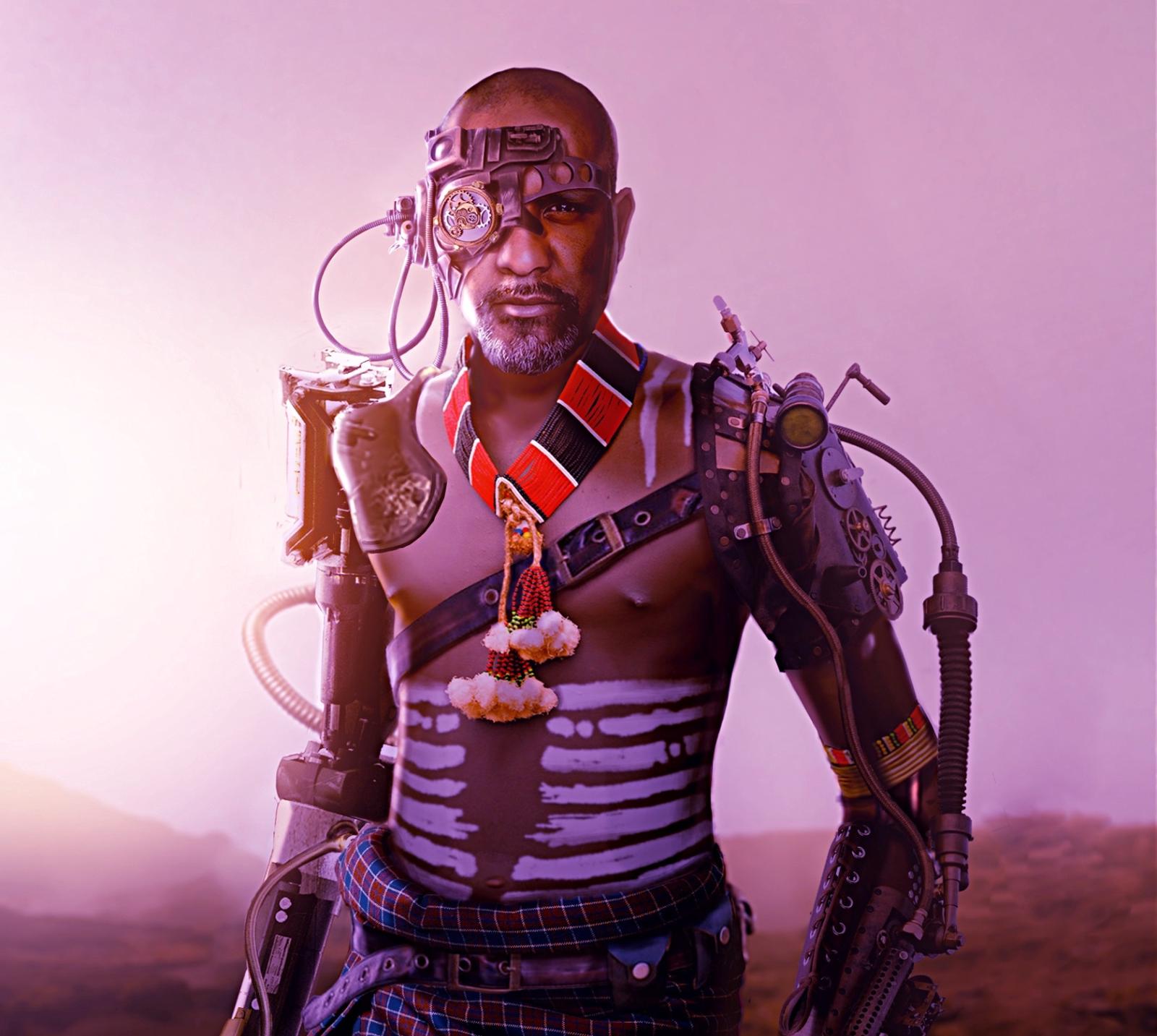
In 2018, the movie “Black Panther,” starring our very own Chadwick Boseman (BFA ’00), took over the planet. Midnight showings sold out; people greeted each other with their arms crossed over their chests; action figures flew off the shelves. The aesthetic of the film, which married African fashion and architecture with futuristic design, increased the popularity of the term “Afrofuturism.”
“Black Panther” has become one of the most popular examples of Afrofuturism, but the movement existed long before the movie, and the concept runs a lot deeper than flying ships and supercomputers in Africa. Sometimes the term is oversimplified and used incorrectly as a term that is interchangeable with Black science fiction. However, Afrofuturism cannot be reduced to a genre.
Afrofuturist Isiah Lavender III encourages us to think of time as a continuum, where even though the violence of our past contributes to the violence of our present, we can plug into the enduring hope of our ancestors to actively construct our future. Afrofuturist creators, like Octavia Butler, center Black characters in future worlds, placing Black hands and Black minds at the forefront of rebuilding a society that has crumbled as a consequence of racial division, greed, and violence. Afrofuturism is a way of thinking and creating that sits at the intersection of race, technology, politics, religion, the scientific, and the fantastic. It combines these elements to come to terms with the Black past, heal in the Black present, and promote a united and powerful Black future. Neither of these goals takes precedence; they are all happening simultaneously and building on each other. Our understanding of the past and the future worlds we create contributes to our healing in the present, while our healing now directly influences our future.
Sometimes the term is oversimplified and used incorrectly as a term that is interchangeable with Black science fiction. However, Afrofuturism cannot be reduced to a genre."
When “Black Panther” was released, it was hard to go a single day without hearing “Wakanda Forever!” Although the phrase is a greeting for a group of people from a fictional country, I have often wondered what it would have meant to Wakandans if they were real. Imagine the pride tinged with despair every time they greeted each other with the name of their thriving country when the names of so many others had been lost. Imagine the fear that would have simmered underneath the passion every time they said “forever,” after witnessing widespread death, the enslavement of their brothers and sisters overseas, and the continued attempted extermination of people who looked like them. And yet they would have continued to greet each other this way over hundreds of years until the phrase came to be recognized worldwide with the unveiling of their existence in the 21st century: centuries of believing in future survival even when the past and present offered evidence to the contrary.
Speculating about a future in which Black people exist, thrive, lead, and survive is not just an exercise in creativity. It is a radical act that asserts the presence of Black people hundreds of years into the future. Afrofuturism provides a framework for this type of radical speculation. While “Wakanda Forever” is not as popular a phrase as it once was, we should still hold on tightly to the idea behind it: We will move forward. Despite all attempts to subjugate, exterminate, silence, and destroy, we will remain … forever.
Article ID: 796




